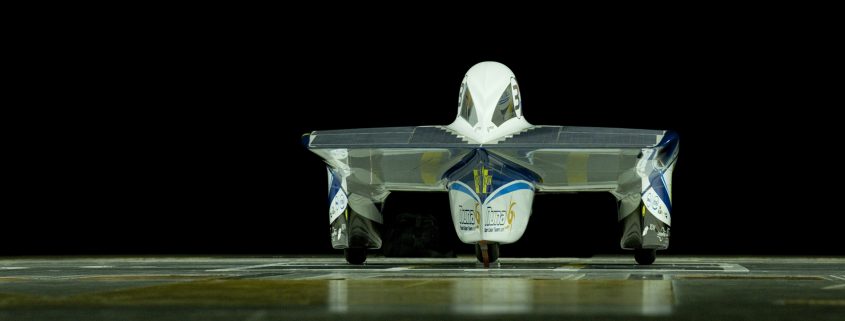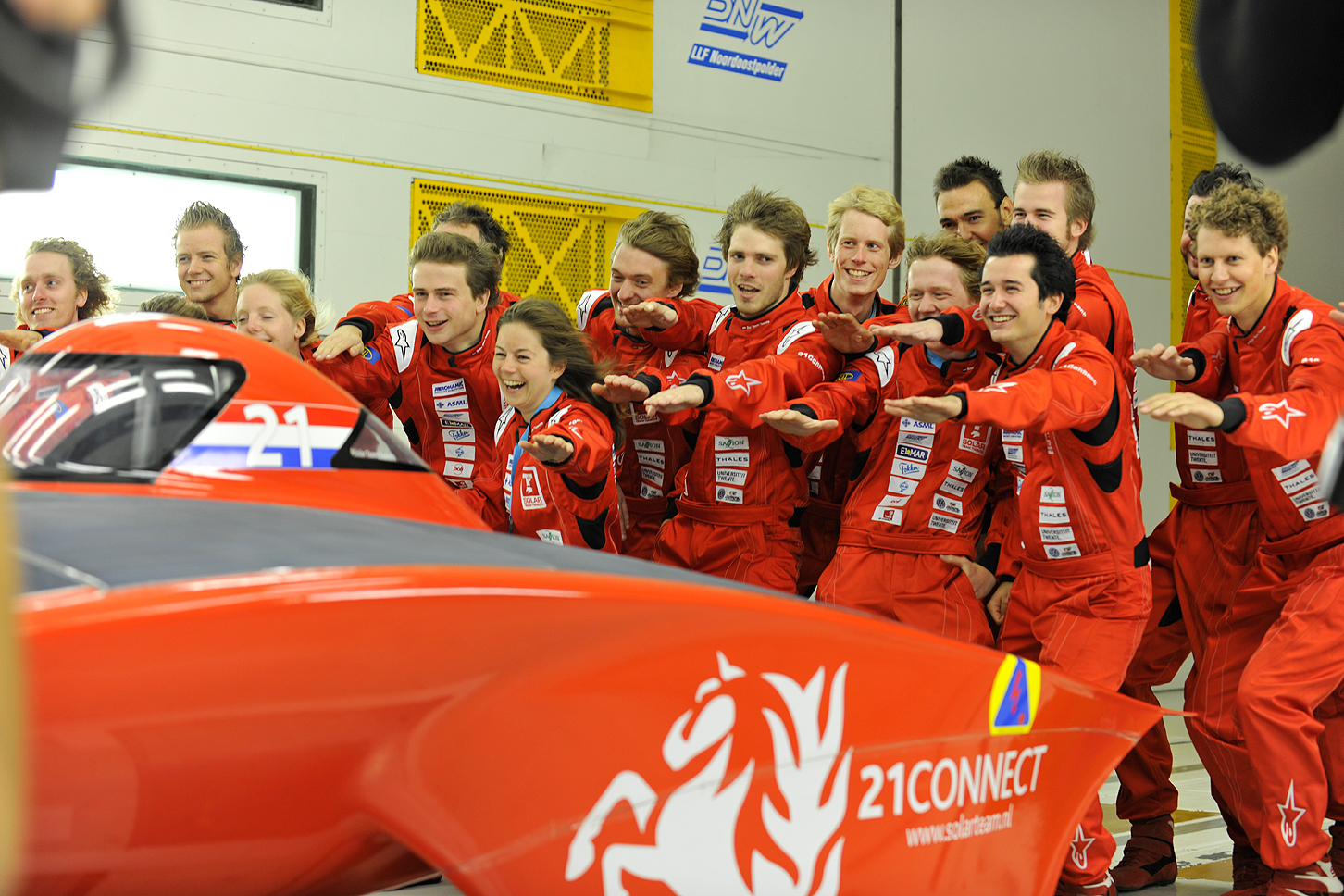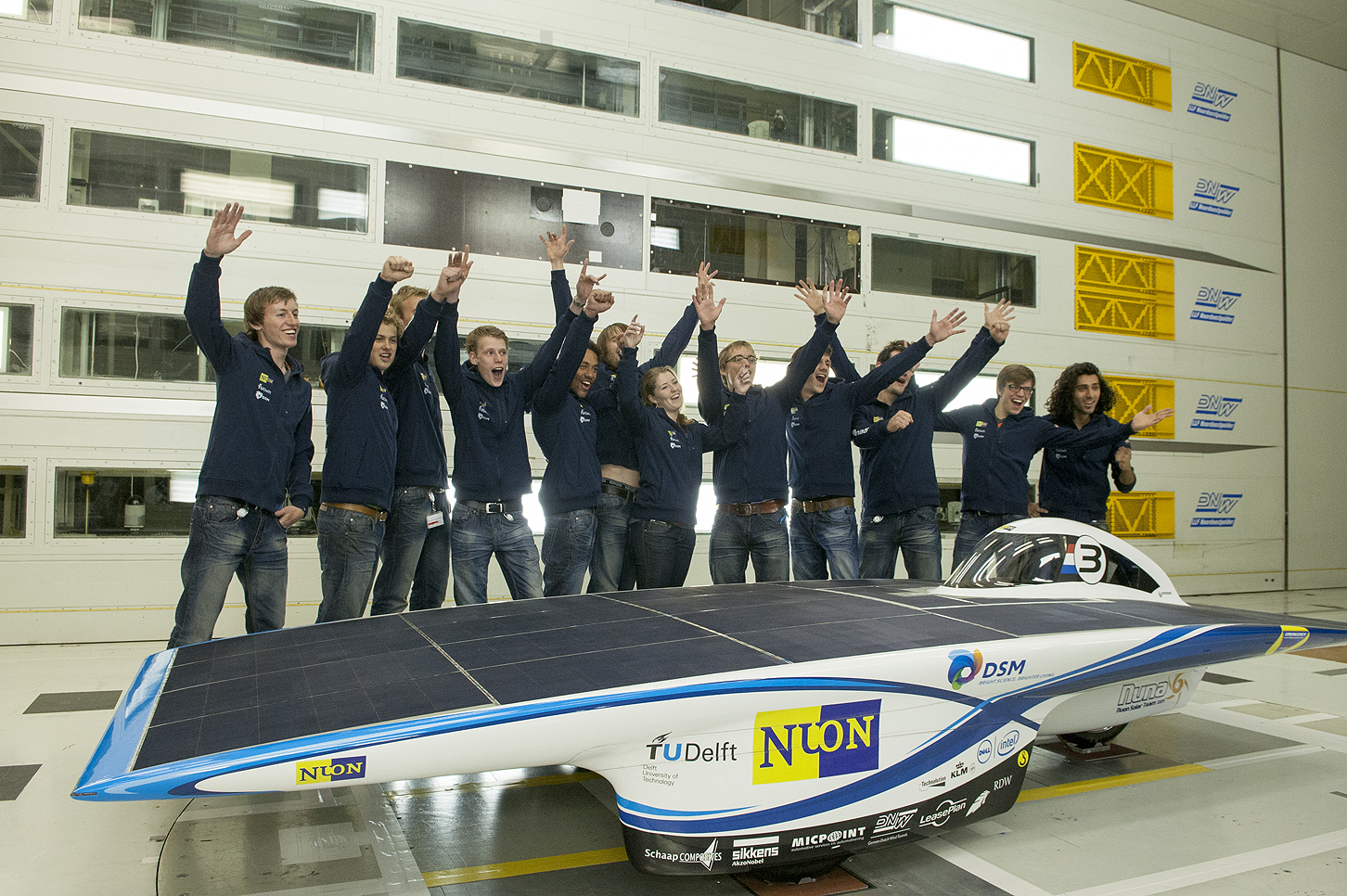The solar cars of the University of Twente and TU Delft were tested in the large low-speed windtunnel of the DNW German-Dutch Wind Tunnels in Markenesse, from July 19-21.
On 16 October, both solar cars will compete in the World Solar Challenge, a Formula 1-style race for solar-powered cars, held in Australia. But before then, both teams tested their cars in one of the DNW windtunnels. The windtunnel tests are designed to measure what type of loads and stresses the wind exerts on the race cars. By closely measuring the solar car’s wind resistance, the team can develop an optimum race strategy, as lower resistance results in less energy consumption.
The solar cars were successfully tested in DNW’s large low-speed wind tunnel (LLF). In this unique facility, the aerodynamics of aircraft, rockets, solar cars and other vehicles are studied and optimised. In addition to the LLF, DNW also manages ten other windtunnels of its parent institutes, the National Aerospace Laboratory (NLR) and Germany’s DLR.
Michel Peters, NLR’s general director: ‘Stemming from the sense of social responsibility that TU Delft, the University of Twente and NLR share, NLR is sponsoring these solar teams. Universities and knowledge institutes like NLR must jointly ensure that innovative products are developed in the Netherlands, now and in future. The focal point is inventing, developing and applying high-tech products, in partnership with industry, which will ensure that the Netherlands remains competitive on the world market
NLR, a knowledge institute for aviation and aerospace engineering, also sponsors automotive technologies, because NLR is continuously searching for opportunities to comprehensively apply its knowledge, facilities and products, such as in automotive technology.
World Solar Challenge
The 3000 kilometre-long race route cuts across Australia, from Darwin to Adelaide. Some 40 teams from 20 countries will compete in the biennial World Solar Challenge.




